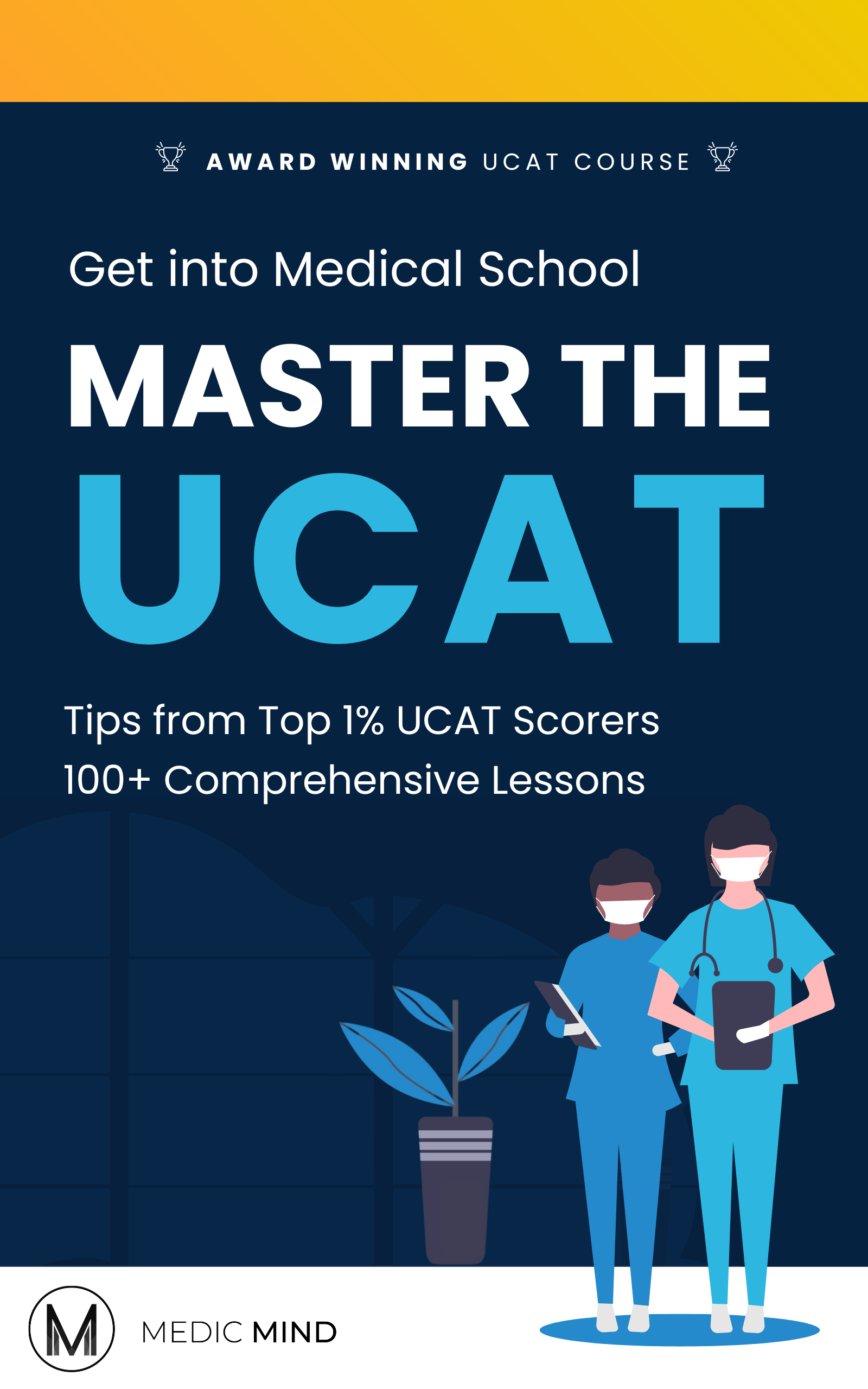Loading...

Medical School Entry Requirements
If you’re considering a career in medicine, then getting into a UK medical school is the first step towards achieving your goal. However, the process of applying can seem daunting, particularly when it comes to understanding the entry requirements for GCSEs and A levels. In this article, we’ll explain what you need to know about the UK medical school entry requirements for 2023.
GCSE Entry Requirements
GCSEs are the first set of exams you’ll need to pass to be eligible for medical school. The exact GCSE entry requirements will vary depending on the individual medical school, but generally, you’ll need to have a minimum of 5 GCSEs at grade 6 or above.
The required subjects usually include Maths, English, and Science subjects. For Science subjects, most medical schools require double or triple Science, Biology, Chemistry, and Physics. Some schools may also require a grade of 7 or above in a language subject.
If you’re struggling in some subjects, it’s essential to note that medical schools have different entry requirements. For example, some universities require a lower grade in English GCSE than others. Bristol and Exeter only require a grade 4 in English, while Leicester will accept candidates with a grade 4 in English. St Andrews medical school takes in students with a grade 5 in English.
Similarly, if you’re weaker in Maths GCSE, you should consider medical schools that accept a lower grade in Maths. Leeds only requires a grade 4 in Maths, while Queen’s Belfast will accept candidates with a grade 4 in Maths. St Andrews medical school takes in students with a grade 5 in Maths.
While Science requirements tend to be less specific, most universities consider them more at A-level than at GCSE. Nonetheless, some medical schools still specify a minimum grade requirement, with most of them accepting candidates with a grade of 6 or above in Biology and Chemistry.
- Lincoln and Nottingham ask for a grade 7 or above, and Leeds asks for a grade 4 or above in these subjects.
- St Andrews only requires a grade 5 or above in Biology.
- For Physics, Keele, Kent Medway, Lancaster, Liverpool, and Sunderland require a grade 6 or above, while Queen’s Belfast accepts a grade 4 or higher.

A Level Entry Requirements
After you’ve met the GCSE entry requirements, the next step is to focus on your A levels. Most medical schools in the UK require three A levels, including Chemistry and Biology, at grade A or above. However, the exact A level requirements may vary from school to school. It’s important to check the specific A level requirements for each medical school you’re interested in applying to.
Some medical schools may also have additional subject requirements, such as Maths or Physics, while others may accept a broader range of A level subjects. It’s important to check the specific requirements for each medical school you’re interested in applying to.
| The Medical schools that require A-levels in Chemistry and Biology | AstonBirminghamBrighton & SussexCardiffEdge HillExeterHull YorkImperialKing’s College LondonLincolnNottinghamSt George’sUCL |
| The medical schools that require A-levels in Chemistry, as well as at least one in Biology, Physics or A-Level Maths: | Aberdeen Medical SchoolBristol Medical SchoolCambridge University Dundee Medical SchoolEdinburgh Medical SchoolGlasgow Medical SchoolLiverpool Medical SchoolOxford Medical SchoolQueen’s Belfast St AndrewsUCLan |
| Medical schools that accept applicants without A level Chemistry | BuckinghamKent Medway – A-Level are strongly encouraged to take Physics, Maths, Psychology or Computer ScienceLancaster – You need two of Chemistry, Biology or PsychologyLeeds – Candidates without A-Level Chemistry should study Physics and/or Maths insteadNewcastle – General Studies, Use of Mathematics, World Development, Communication and Culture or Critical Thinking aren’t considered, but their website doesn’t mention other requirementsNorwich (UEA) |
| medical schools require Chemistry OR Biology A-Level, as well as Chemistry, Biology, Physics or Maths | Anglia RuskinBartsBrunel (currently open to international applicants only)KeeleLeicesterManchesterSheffieldSunderland#4-7 medical schools also will accept Psychology as a second science subject. Keele considers Economics to be a second science subject. |
| Medical schools require Biology | Plymouth – Biology is required, plus at least one of Chemistry, Physics, Maths or PsychologySouthampton – Biology is required, plus at least one of Chemistry, Physics, Psychology, Sociology, Environmental Studies or Geography |
As mentioned above, most medical schools in the UK require A levels in Chemistry and Biology. These two subjects are essential for the study of medicine and are also prerequisites for many medical courses at university.
Some medical schools require Chemistry A level, as well as at least one of Biology, Physics, or A-level Maths. This requirement may vary from school to school, so it’s important to check the specific requirements for each medical school you’re interested in applying to.
If you don’t study Chemistry at A level, some medical schools will still consider your application. These schools may offer a Chemistry conversion course, which you can take during your first year of study.
Medical School Aptitude Test (UCAT/BMAT)
In addition to the GCSE and A level requirements, many UK medical schools require applicants to sit an aptitude test. There are two main tests: the University Clinical Aptitude Test (UCAT) and the BioMedical Admissions Test (BMAT).
The UCAT is a computer-based test that assesses your cognitive abilities and reasoning skills. It’s used by over 30 UK universities, including some of the most competitive medical schools. The BMAT, on the other hand, is a pen-and-paper test that assesses your scientific knowledge, problem-solving, and critical thinking skills.
What if I don’t meet the entry requirements for medical school?
If you don’t meet the entry requirements for medical school, there are still options available to you. Some medical schools may consider applicants with slightly lower grades if they demonstrate other strengths, such as relevant work experience or extracurricular activities.
Alternatively, you could consider taking a gap year to improve your grades or gain relevant experience. There are also foundation courses available that can help you meet the entry requirements for medical school.
In conclusion, it’s crucial to check the entry requirements of the medical schools you’re interested in before applying. Aim to achieve the highest grades possible in your GCSEs, A levels, and UCAT/BMAT tests to increase your chances of getting into your preferred medical school.
FAQs
→ Are there any medical schools in the UK that don’t require Chemistry A-Level?
Yes, some medical schools don’t require Chemistry A-Level, such as the University of Central Lancashire, Plymouth University, and Edge Hill University. However, it’s essential to check the specific entry requirements of the medical schools you’re interested in before applying.
→ Can I study medicine with B grades at A-Level?
While some medical schools accept B grades at A-Level, the majority of medical schools require a minimum of ABB at A-Level. Some top medical schools, such as Oxford and Cambridge, may even require AAA or above.
→ Can I apply to medical school with non-science A-Level subjects?
Yes, some medical schools accept non-science A-Level subjects, such as History or Languages, alongside Chemistry and Biology. However, it’s essential to check the specific entry requirements of the medical schools you’re interested in before applying.
→ Can I apply to medical school without any science A-Level subjects?
It’s unlikely that you’ll be accepted into medical school without any science A-Level subjects. Most medical schools require Chemistry and Biology A-Level, with some also accepting Physics or Maths.





Was this article helpful?
Still got a question? Leave a comment
Leave a comment